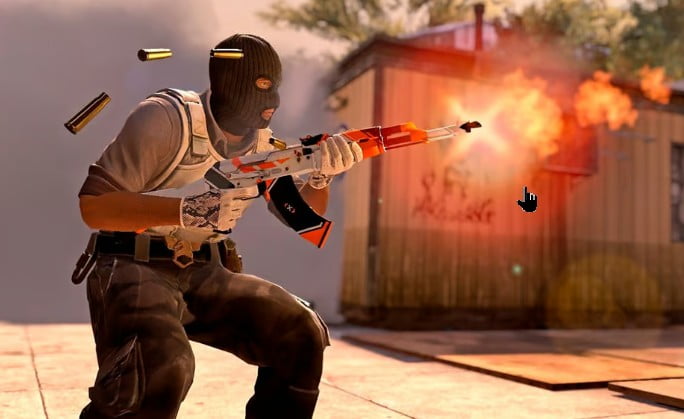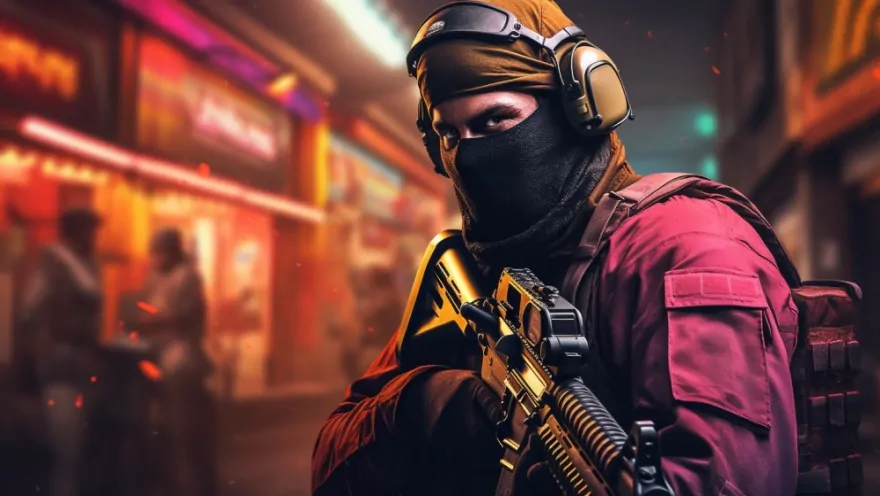In the world of Counter-Strike: Global Offensive (CS), a significant event has caused players, analysts, and developers to ponder the future of anti-cheat efforts. Recent statistics from Leetify have shown a substantial decrease in the number of VAC bans over the past few months. This unexpected change has raised many questions and theories within the community, as well as among professional bettors placing wagers on CS2 at Pin Up AZ and other bookmakers. Let’s delve into what might be behind these numbers and the potential implications for the game.

Surprising Statistics
The data provided by Leetify presents an intriguing picture. In July 2024, VAC (Valve Anti-Cheat) banned only 5,608 players. This number might seem significant, but it pales in comparison to previous months. In June, 8,514 bans were recorded, which is 34% more than in July. But the most striking comparison is with May, when 24,439 players were banned. This means that the number of bans has dropped by a staggering 77% over two months.
Such a sharp decline in bans raises several questions. Has the game become cleaner? Or have cheaters become smarter? Or has the VAC system itself stopped being effective?
Possible Reasons for the Decrease in Bans
Several theories could explain this trend:
Improvement in Anti-Cheat Systems: One optimistic theory is that Valve might have significantly improved their anti-cheat systems. This may sound paradoxical given the reduction in bans, but the logic is there. If the system has become so effective that cheaters find it harder to bypass, it could lead to fewer attempts to cheat.
Change in Player Behavior: We might be witnessing a cultural shift in the CS community. Years of battling cheating, high-profile bans of well-known players, and public condemnation might have led to fewer players daring to use cheats. The fear of being caught and losing reputation could outweigh the desire to gain an unfair advantage.
External Factors: External factors cannot be ruled out. For example, the release of major updates or new game modes might temporarily divert potential cheaters’ attention. Additionally, seasonal fluctuations in player activity might also affect the ban statistics.
Evolution of Cheats: A less optimistic theory suggests that cheat developers have found new ways to bypass the VAC system. If this is the case, the reduction in bans might not indicate a decrease in cheaters but rather that they have become better at evading detection.
Implications for the CS Community
The decrease in VAC bans can have various consequences for the gaming community:
Positive Scenario
If the reduction in bans truly reflects a decrease in the number of cheaters, it could significantly improve the gaming experience. Fairer matches promote healthy competition and can attract new players who are tired of encountering cheaters in other games.
Negative Scenario
On the other hand, if the reduction in bans is due to cheaters becoming better at hiding, it could lead to increased frustration among honest players. The perception that the game is full of undetected cheaters could drive away both newcomers and veterans.
Valve’s Role in Combating Cheating
In light of this data, Valve’s role becomes even more critical. The company needs to:
Continually update and improve the VAC system to stay ahead of cheat developers.
Communicate more openly with the community about the measures being taken against cheating.
Consider collaborating with third parties like FaceIT or ESEA, known for their effective anti-cheat systems.
Invest in educational initiatives aimed at fostering a culture of fair play among young players.
The decrease in VAC bans is just one aspect of the complex CS ecosystem. The real challenge lies in using this information to create a more honest and enjoyable gaming environment.
We may be on the brink of a new era in anti-cheat efforts, where technology and community culture combine to create a truly fair playing field. Or this could be the calm before the storm, and we should prepare for a new wave of more sophisticated cheats.
In any case, the key to success will be community vigilance, continuous improvement of anti-cheat systems, and an unwavering commitment to the principles of fair play. Only then can CS maintain its status as one of the most respected and competitive esports disciplines in the world.
